This IWD, Cristiana Dell'Anna Brings the Story of Cabrini to the Forefront
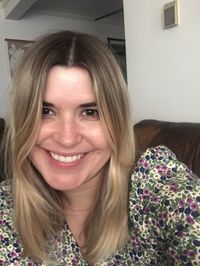
Despite her incredible achievements in equality in late 19th century America and being the first American citizen to be canonized a saint, St. Frances Xavier Cabrini (also known as Mother Cabrini) isn't spoken about much in the history books. Nor is she a widely known figure. But hers is a story of unwavering determination and persistence, one of entrepreneurship, and one that is still rather contemporary in the obstacles she had to overcome as a woman. It feels only fitting that the Italian American's life is being celebrated in the film Cabrini on International Women's Day—a day on which we honor the social, economic, cultural, and political achievements of women around the globe.
Admittedly, I first became aware of Cabrini when I was approached about covering the biographical film and its star, Italian actor Cristiana Dell'Anna. I went in uninformed, outside of a quick search on Google, and came out completely inspired. The movie focuses on Cabrini's work with her Institute of the Missionary Sisters of the Sacred Heart of Jesus. Though she and her sisters sought out to be missionaries in China, Pope Leo XIII instead sent them to New York City in 1889, and upon arrival, they were met with disease, crime, and impoverished children. Mother Cabrini went straight to work, organizing catechism and education classes for the Italian immigrants. Although she was often met with great hostility and resistance from the mayor, Cabrini wouldn't take no for an answer and went on to secure housing and healthcare for the city's most vulnerable. With a relentless spirit, she would eventually create an empire of hope, building schools across America, Europe, and Central and South America.
For Dell'Anna, playing Cabrini was the opportunity of a lifetime. "I thought, 'If I don't get the part, I'll be the most miserable person in my life because she's wonderful,'" the actor tells me from her house in Tuscany. Dell'Anna was just moving into her Central Italy home with her husband when she was approached about the part.
She was in between jobs and enjoying a bit of calm in her life when Hollywood casting director Denise Chamian called her up. Chamian had seen Dell'Anna in the Max crime thriller series Gomorrah and thought she'd be perfect for the role of the Italian American saint. Additionally, rumor has it that legendary director Martin Scorsese told Eustace Wolfington, a producer on the film who was instrumental in bringing Cabrini's story to the big screen, that an Italian actress should have the role. "Before me, they were probably looking into big Hollywood names, established actors, and because of that little piece of advice, that's how they got to me," Dell'Anna recalls with a big smile.
Ahead, I talk to Dell'Anna about the relevance of Cabrini's story today, using nos as a source of power in her career, and the women who inspire her.
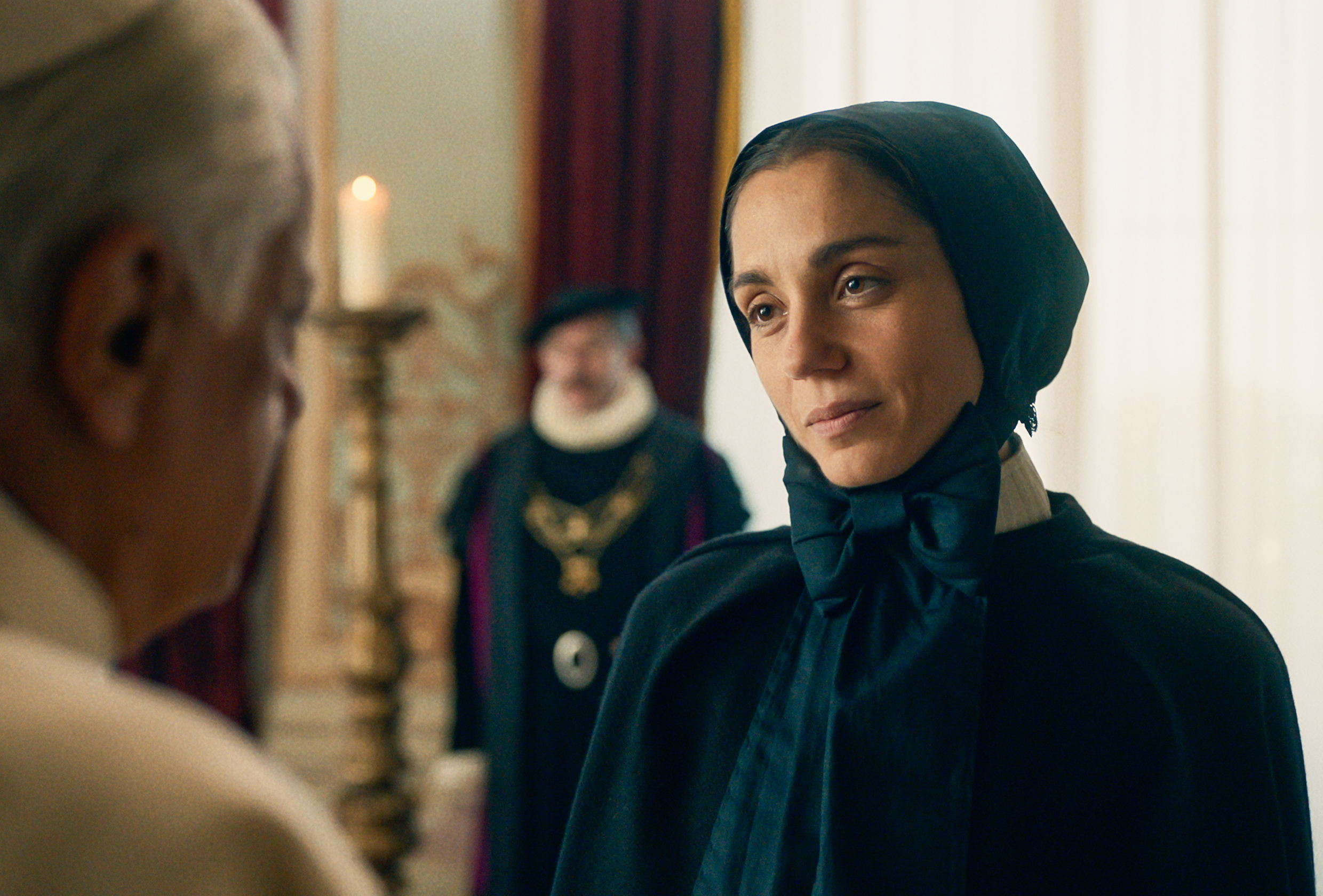
I didn't know much about Cabrini before watching this film, and I imagine that might be the case for a lot of people. What was your first introduction to Cabrini and her work?
Well, the thing is I didn't know much about her either. I kind of knew who she was because, by chance, I happened to have heard about her, but so many people, even in Italy, don't really know who she is. In fact, when I say, "I just made a movie about Cabrini," people believed that it was a footballer because there is a football player in Italy whose last name is Cabrini. To me, it was a bit of this same thing. The film brought her to me as a historical figure … and it was through the film that I could research [her].
Outside of the opportunity to portray such an inspiring historical figure, what were some of the other factors that really excited you about being a part of this film?
In terms of what else excited me about playing this role is it's such a great opportunity because it's such a huge role in a big movie. Even if it's an independent movie, being the one woman in the story that carries the whole story through, it's a huge opportunity as an actor. It doesn't happen often because the narrative is always a male point of view. Not by chance, the movie is out March 8, International Women's Day, because it's a narrative from a woman's perspective. That's another thing—I want to be part of stories that tell what we are in all shapes and forms. We don't have to just be superwomen or housewives. We can even be a nun in the late 1800s who has done so much for the immigrants.
What really struck you about Cabrini's story?
The one thing I have in common with her. All of the nos that she had to fight against, that actually became her source of power. I began my path in life starting with a big no from my dad, who didn't really believe that this was a reliable career. That's just a small example to tell you how that no became this challenge for me, and I had to prove people wrong together with wanting to determine myself in my own identity. I was carried by both motivations and inspirations, which is something I believe Cabrini did in the same way.
She says she built her career on all of the nos she's received in her life. She was resourceful in ways that I couldn't even imagine. I wouldn't have been able to do what she's done—that's for sure. … She understood how applicable the message of hope and generosity and the responsibility that we have toward others is to society. She was determined to create a better society. She had a vision of a new reality that could embrace and include more people in it instead of being exclusive, and she showed how to do it, that it was possible. That's a very contemporary message. That's something I love about her.
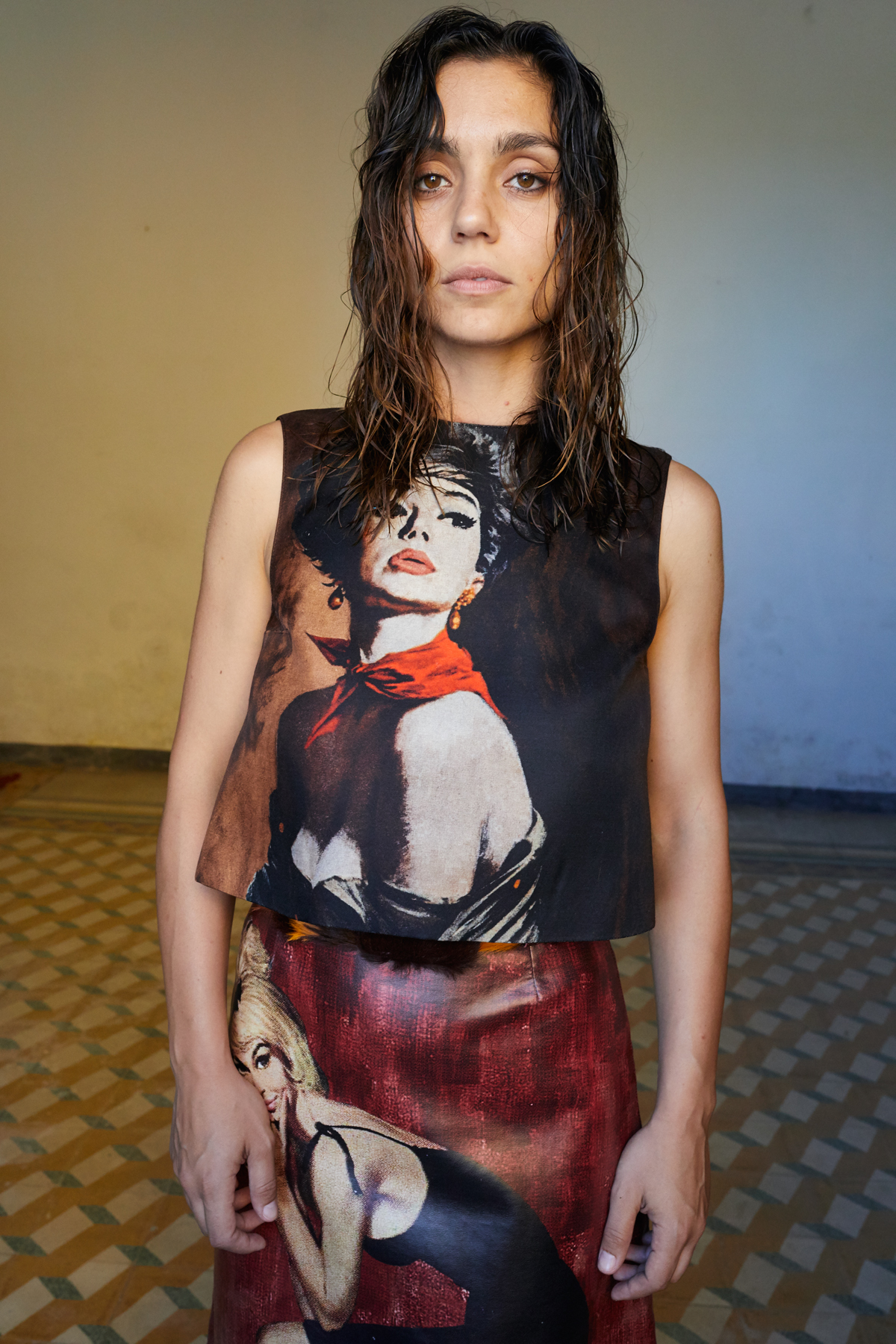
What about Cabrini's story do you think will resonate with audiences today?
Well, there are two very specific themes. One we just talked about [was] the fact that she was so inclusive. She was for the immigrants. She believed in integration and what it meant. She taught English to the Italian immigrants, but she didn't limit her scope to the Italians. She helped everyone. She was very inclusive, which is a thing that is very contemporary nowadays, and if I think about what is going on everywhere in the world, it's not just the barriers and the borders that we put up [and] that we see coming up in the United States or anywhere else in the world.
What's happening in the Mediterranean right now is very frustrating and heartbreaking to know that so many people have tried to leave their countries for a better future, and they don't even know that they are actually approaching even worse conditions because there is discrimination. They probably regret having left their own countries. That's something that teaches us history hasn't changed a bit, and we should learn from it instead of repeating our own mistakes. There is no way to stop cultural evolution. The overlapping of cultures is something that's always happened, and it would be limiting for ourselves to not acknowledge that, and she did.
Second, which is still very contemporary, is the fact that when I was researching her life, I was asking myself, "Why did she choose to be a nun?" Yes, she grew up in a religious family, but at the time, if we put that in context, it's the equivalent of today asking, What do we have as options for us women to choose what we want to be, to be our own masters? She had… I could cut it down to three options. She could be a prostitute, she could be the lady of the household, or she could be a nun. In the first two cases, she would still be owned by someone, either exploited for her services or … imprisoned literally in her own house being the manager of her own house, but she wouldn't be the manager of herself. Whereas choosing to be a nun, she dreamt of traveling the world and seeing the world for… I would call it a selfish motivation because she was curious. Obviously, she wanted to help the others, but it was also because she wanted to be her own maker.
That's why I believe she chose to be a nun. She wanted to be free, and I just believe that's … probably the one reason we should know her story.
What were some of the resources that were key to you in preparing for this role?
This needs to be taken in the right way because I didn't do much. I started eating much less because I wanted to deprive myself of something to see what it felt like to sacrifice [something]. I love food. There's no doubt about that. So I just wanted to try that and look a little bit ill because she suffered from tuberculosis, so she had to look a little ill as well. I didn't go on a diet or anything. It was just a way for me to try and understand the character and look a little more like her. I knew she was very tiny, so for me, that helped me understand that she maybe had a fast-paced walk. I was trying out, literally, ways of walking, which would also inform the way I would talk to people.
The fact that she was ill and she had a pain somewhere in her body every now and again, especially in her lungs, I used that as well whenever I found a good moment to show that sometimes she had fatigue and she was physically exhausted. But I wanted to make her very human—all the little things that we do when we speak that we don't think about. Especially Italians and Europeans, they move a lot. I just let her come to me eventually, which sounds very spiritual but isn't. I read the script so many times, and I read about her so much that, at some point, I had to stop and just let it settle so that it could set somewhere here, and I didn't have to think about it. Anything that happened on set, I can't explain it. It was just pure magic.
What is something you learned from Cabrini or are taking away from this experience?
It's funny because this question … always works the other way around. It's never something that I take from the character. It's something that I leave to the character. There's a part of me that I leave behind, that I lose into the character. I don't know where it goes, but there's a bit of me that gets lost somewhere, and that person becomes real. When I see the movie, I feel like that person now exists other than me. It wasn't something that I did. It's something that exists, and if I could, I would call them up and ask them, "How are you doing?" There is probably one thing, though, that I could take with me, and that is the relentlessness with which she worked. When you said she didn't take no for an answer, I just think she did it in ways that teaches what it means to be patient about things and to turn things to your advantage for a better cause, for a higher ideal, or simply things that you wish for yourself to be happy.
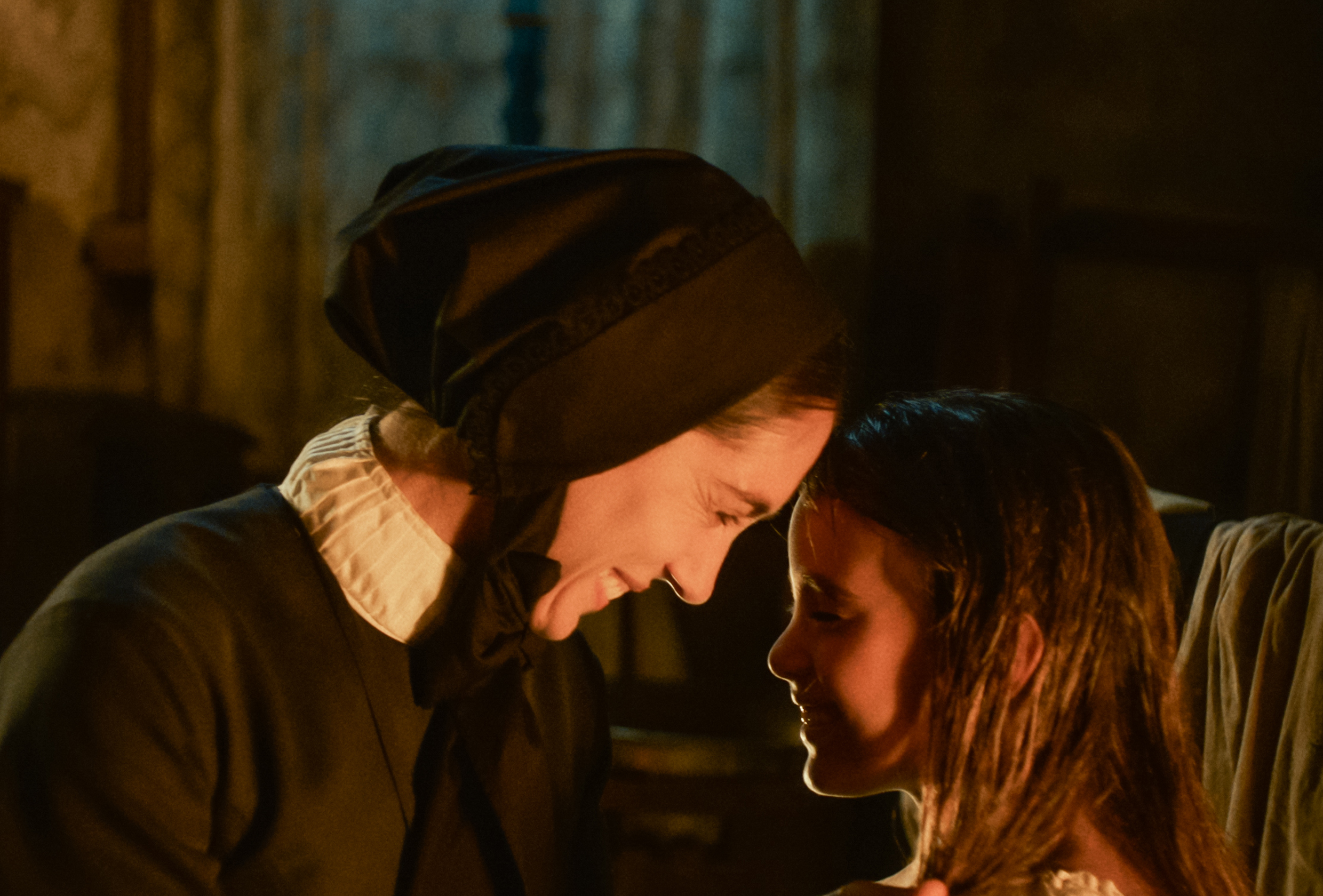
The film is coming out on International Women's Day. Who are some of the women who really inspire you and/or have played a significant role in where you are in your career today?
Oh, there are a few. Let me think. It's so hard. I don't know if you know about Margherita Hack. She was a scientist, an Italian astronomer. She's always been inspirational because of the way she lived her life. She was one of the first women to become such a famous astronomer and is respected all around the world really.
I've always been a fan of Emma Thompson. She's wonderful to me because she's also a writer. She's not just an interpreter of someone's voice. She has her own. She's one of my favorite actresses ever. There is another actress. I don't know if you've ever heard of Eleonora Duse. She was a famous theater actress pretty much at the same time as Cabrini, and she became the first woman to end up on the cover of Time magazine. She inspired Anton Chekhov and [Konstantin] Stanislavski and eventually Lee Strasberg with her way of acting. She inspired what we call today "method acting" because they were trying desperately to put into its structure her way of acting. She's a modern actress as we know it today, as we know acting today.
Cabrini is now in theaters.
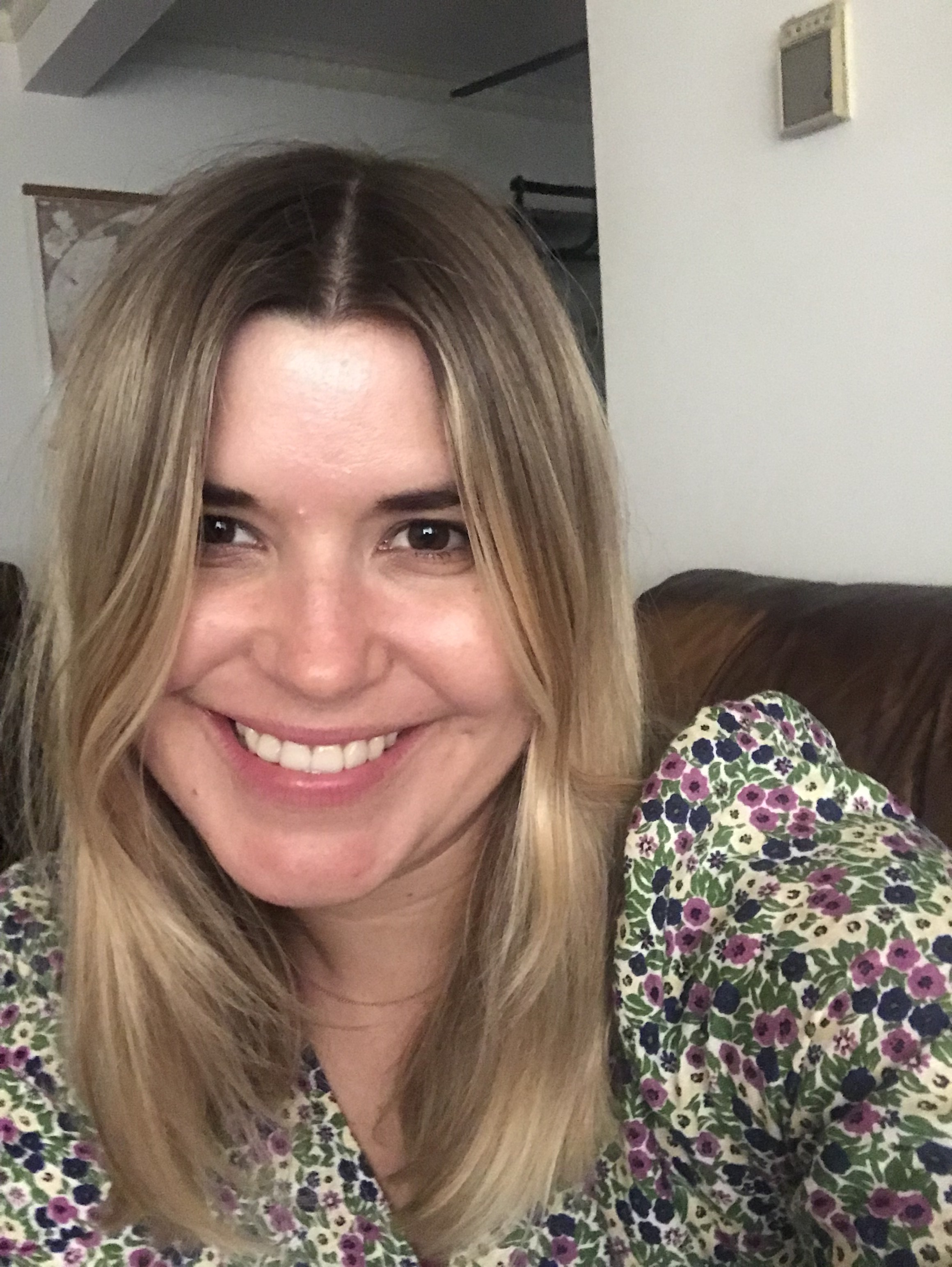
Jessica Baker has 16 years of experience in the digital editorial fashion and entertainment space. She is currently the Executive Director, Entertainment at Who What Wear where she ideates, books, writes, and edits celebrity and entertainment features.